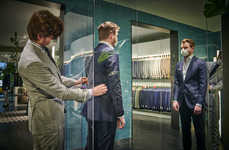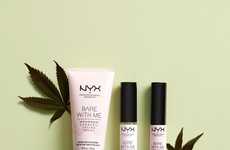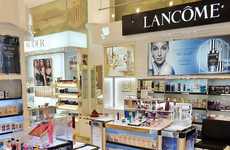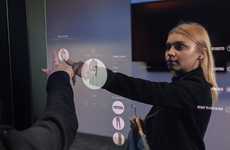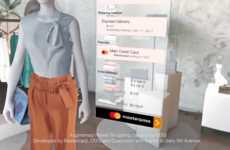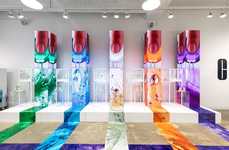

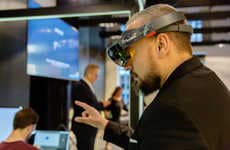

Brands incorporate shoppable VR campaigns into their marketing tactics
Trend - Combining the in-person purchase journey with the comfort of ordering from home, retailers are incorporating shoppable VR experiences and videos into their campaigns. For the most part, these unique campaigns are testing the functionality and potential of purchasing via virtual reality.
Insight - Though the e-commerce industry is booming, there are some aspects of the brick-and-mortar shopping experience that are still important to consumers. Being able to examine and test products in stores gives consumers more confidence in their purchase decisions. Brands that merge these processes are able to combine the favorable convenience of e-commerce, with the trial-and-error elements associated with in-person shopping experiences.
Insight - Though the e-commerce industry is booming, there are some aspects of the brick-and-mortar shopping experience that are still important to consumers. Being able to examine and test products in stores gives consumers more confidence in their purchase decisions. Brands that merge these processes are able to combine the favorable convenience of e-commerce, with the trial-and-error elements associated with in-person shopping experiences.
Workshop Question - Conceptualize a shoppable VR platform that your customers could use in their homes.
Trend Themes
1. Shoppable VR Experiences - Brands are incorporating shoppable VR experiences and videos into their campaigns to merge the in-person purchase journey with the comfort of ordering from home.
2. Virtual Reality Showrooms - Retailers are utilizing virtual reality to create enhanced customization experiences for their consumers.
3. Vr-powered Interactive Campaigns - Brands are capitalizing on advanced technologies like virtual reality to create engaging and immersive interactive campaigns.
Industry Implications
1. Retail Industry - The retail industry can leverage virtual reality to enhance the shopping experience and integrate in-person and online elements.
2. Beauty Industry - The beauty industry can incorporate virtual reality to create immersive experiences that allow consumers to visualize products and their effects.
3. Cannabis Industry - The cannabis industry can utilize virtual reality to create informed and interactive experiences for consumers surrounding the effects of different products.




